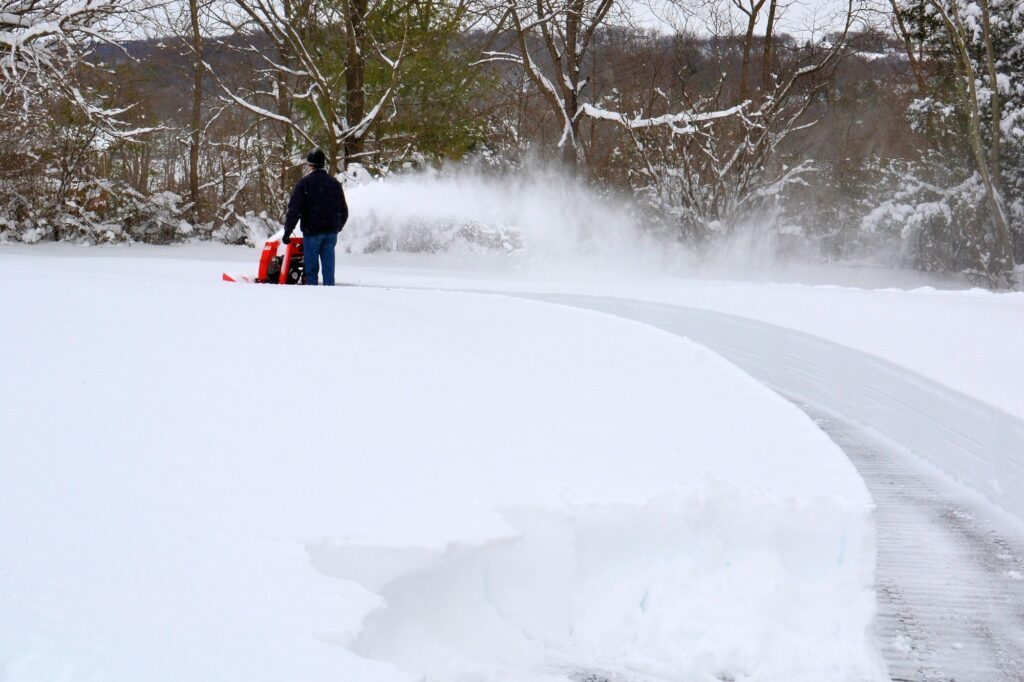Understanding Driveway Repair Costs: Factors, Types, and Budgeting Tips
Factors Influencing Driveway Repair Costs
When it comes to driveway repair, several factors play a crucial role in determining the overall cost. First and foremost, the type of damage your driveway has sustained can significantly influence the price. For instance, minor cracks and surface-level issues may only require a simple sealant or patching, which is generally more affordable. However, if your driveway has deeper structural problems, like sinkholes or significant cracking, the repair process can become more complex and costly. Therefore, assessing the extent of the damage is essential before jumping into repairs, as it sets the baseline for your overall budget. Another important factor to consider when evaluating driveway repair costs is the materials used.
Driveways can be made from various materials, such as concrete, asphalt, gravel, or even decorative pavers. Each material comes with its own set of repair techniques and price points. For example, asphalt repairs might involve resurfacing, which can be less expensive than replacing concrete slabs. On the other hand, if you have a decorative driveway, the repair may require specialized materials and techniques, increasing the overall cost. So, understanding the type of material and its specific repair needs can help you make informed decisions.
Lastly, the location and accessibility of your driveway can also affect repair costs. If you live in a region where labor and materials are costly, or if your driveway is difficult to reach, you might see higher quotes from repair professionals. Additionally, local regulations or homeowner association rules may dictate certain repair standards, which could add to your expenses. It’s worthwhile to shop around for quotes and consider getting multiple opinions to find competitive rates. As you can see, driveway repair costs can vary widely based on these factors, so doing your homework is crucial before making any decisions.
In addition to the factors already mentioned, the time of year you choose to carry out driveway repairs can also impact costs. Typically, spring and summer are peak seasons for landscaping and home improvement projects, including driveway repairs. During these months, contractors may be in higher demand, which can lead to increased labor costs. Conversely, if you schedule your repairs during the fall or winter, you might find lower rates, as fewer homeowners are looking to tackle outdoor projects. However, keep in mind that weather conditions can affect the quality of the repairs, so it’s essential to strike a balance between cost and quality when scheduling your work. Furthermore, the choice of contractor can influence the overall cost of your driveway repair.
Not all contractors charge the same rates, and their level of expertise can vary significantly. It’s essential to do your research and select a reputable contractor who has experience with the specific type of repair you need. While you may be tempted to go with the lowest bid, remember that quality workmanship can save you money in the long run by reducing the likelihood of future repairs. Reading reviews, checking references, and asking for detailed estimates can help you find a reliable contractor at a fair price. Lastly, the size of your driveway plays a role in repair costs as well.
Protect your investment—schedule a professional evaluation today!
Larger driveways will naturally require more materials and labor, resulting in higher expenses. When planning your repair budget, be sure to factor in the square footage of your driveway, along with the extent of the damage. Understanding these various elements can help you create a more accurate budget and ensure that your driveway repairs are completed efficiently and effectively. By taking the time to consider all these factors, you can approach your driveway repair project with confidence.
Common Types of Driveway Repairs
When it comes to driveway repair, understanding the common types of repairs can help homeowners make informed decisions. One of the most frequent issues faced is cracking. Over time, the elements can take a toll, causing small hairline fractures to develop, which, if left unchecked, can lead to more significant damage. A simple crack repair can often involve filling the gaps with a sealant, which not only improves the appearance of your driveway but also prevents water from seeping into the cracks, further exacerbating the problem.
Ensure your driveway survives heavy traffic—schedule an inspection today!
It’s a straightforward solution, but one that’s crucial for maintaining the longevity of your driveway. Another common type of driveway repair is pothole filling. Potholes can form when moisture infiltrates cracks and then freezes, causing the asphalt to expand and contract. This repetitive cycle can create deeper holes that pose a hazard for vehicles and pedestrians alike. Repairing potholes usually involves removing the damaged asphalt and replacing it with fresh material. If you’re facing multiple potholes, it’s wise to address them promptly to avoid larger repairs down the line. Remember, while pothole filling might seem like a temporary fix, regular maintenance can help your driveway stay in tip-top shape.
Lastly, if you notice areas where the surface is starting to sag or buckle, you might need a more extensive driveway repair known as resurfacing. This process involves applying a new layer of asphalt over the existing surface. Resurfacing can restore the look of your driveway and extend its lifespan without the need for a complete replacement. It’s a cost-effective solution for those looking to enhance curb appeal while ensuring their driveway remains functional. By understanding these common types of driveway repairs, homeowners can better prepare for maintenance and tackle issues before they escalate. Driveway repair is a crucial aspect of home maintenance that often gets overlooked until significant damage occurs.
One common repair that many homeowners face is sealcoating. This process involves applying a protective layer over the asphalt surface to shield it from harmful UV rays, oil spills, and water damage. Sealcoating not only enhances the curb appeal of your property but also extends the life of your driveway. Typically, it’s recommended to sealcoat every two to three years, depending on your climate and usage. If you notice fading or wear, it might be time to call in a professional for this simple yet effective repair.
Stop tree roots from damaging your driveway—get professional advice on root barriers!
Another important repair type is edge repair, which focuses on the borders of your driveway. Over time, the edges can crumble or degrade due to erosion, vehicle traffic, or landscaping activities. Repairing the edges helps to maintain the structure of your driveway and prevents further deterioration. This usually involves reinforcing the edges with additional material and ensuring proper drainage so that water doesn’t pool and cause more damage. Taking care of edge repairs early on can save you from larger repair costs in the future. Lastly, if you have a concrete driveway, you might encounter joint sealing as a necessary repair. Concrete driveways are prone to cracks that develop at the joints where slabs meet. Sealing these joints with a flexible material can prevent water penetration and reduce the risk of cracking. This repair is essential for maintaining the integrity of your concrete surface, especially in regions with fluctuating temperatures. By being aware of these various types of driveway repairs, homeowners can take proactive steps in maintenance, ensuring their driveways remain safe and visually appealing for years to come.

Man using a snow blower to clear his driveway in the winter
Budgeting for Driveway Repair Projects
When it comes to budgeting for driveway repair projects, it’s essential to start by assessing the current condition of your driveway. Are there cracks forming, or has your surface started to sink in certain areas? Understanding the extent of the damage will help you determine how much you might need to spend. Generally, the cost of driveway repair can vary significantly depending on the materials used, the size of the area needing repair, and the complexity of the job. For instance, a simple crack fill might only set you back a few hundred dollars, while more extensive work, like resurfacing or replacing large sections, could run into the thousands.
Keeping these factors in mind will help you create a realistic budget that aligns with your needs and expectations. Once you have a grasp on the necessary repairs, it’s time to gather quotes from various contractors. This step is crucial, as it allows you to compare prices and services effectively. While one contractor might offer a lower price, it’s important to consider the quality of materials they use and their reputation in the market. Don’t hesitate to ask for references or check online reviews to ensure you’re making a sound investment.
Additionally, consider setting aside a little extra in your budget for unexpected costs; it’s not uncommon for repairs to reveal underlying issues that need addressing, which could impact the total cost of your driveway repair project. Lastly, remember that budgeting for driveway repair isn’t just about the immediate costs; it’s also about the long-term benefits. Investing in quality repairs can extend the lifespan of your driveway, which means fewer repairs and maintenance in the future. It’s a bit like taking care of your car—regular maintenance may seem like an expense, but it saves you money down the road by preventing more significant issues. So, as you plan your budget, think not only about the short-term repair costs but also about how these investments can pay off in the long run, keeping your driveway looking great and functioning well for years to come.
CTA: Have more questions? Contact us for expert advice and a free consultation!
When planning for driveway repair, it’s crucial to create a detailed budget that considers all aspects of the project. Start by listing the specific repairs needed, such as crack filling, resurfacing, or even complete replacement. Each of these repairs comes with its own cost range, so knowing exactly which services you’ll need is essential. You can research average costs online to get a rough estimate, but remember that local prices may vary based on your location and contractor availability. Next, factor in additional costs that might not be immediately obvious.
For example, do you need to remove old materials before repairs can begin? This can add to labor costs. Also, consider whether you want to enhance your driveway with decorative finishes or sealants, which can improve its appearance and longevity but will also increase your overall budget. It’s wise to allocate about 10-20% of your budget for unexpected expenses that may arise during the repair process, ensuring you’re prepared for any surprises. Finally, don’t forget about the potential return on investment. A well-maintained driveway not only boosts your home’s curb appeal but can also increase its value. This is especially important if you plan to sell your home in the near future. By investing time and resources into your driveway repair project, you’re ultimately enhancing your property and ensuring that your home remains an attractive option for potential buyers. Overall, a well-thought-out budget is the first step to executing a successful driveway repair project.
FAQs: Common Questions About Driveway Repair
Q: How much does driveway repair typically cost?
A: Costs vary depending on material, damage severity, and driveway size. Minor repairs may cost a few hundred dollars, while resurfacing or large-scale repairs can range from $1,000 to $5,000.
Q: How can I find a reputable contractor?
A: Research online reviews, ask for references, and request detailed quotes. Look for contractors with experience specific to your driveway material.
Q: Is DIY repair effective?
A: DIY repair works well for minor issues like small cracks. For larger or structural problems, professional assistance is recommended for lasting results.
Q: How often should I sealcoat my driveway?
A: Sealcoating is typically recommended every 2–3 years, depending on climate and usage.
Q: Can I repair my driveway in winter?
A: Repairs during winter can be challenging due to freezing temperatures. Cold weather fillers may work, but spring or summer repairs offer better results.





